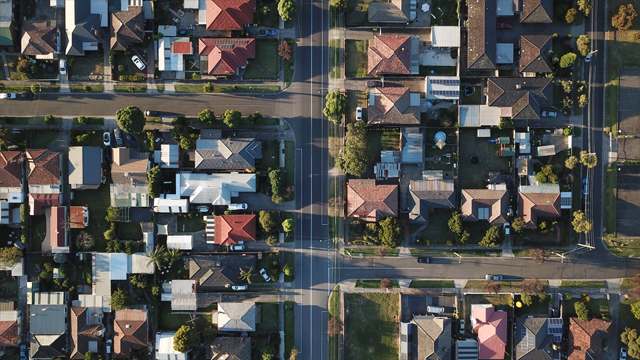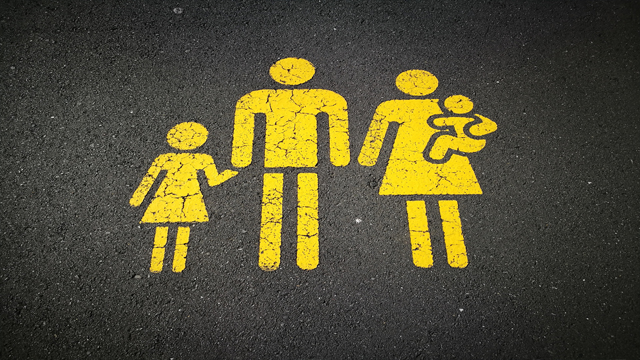Month: April 2023
NSW Surcharge Purchaser Duty and Land Tax – NEW Exemption for Foreign Owners from Four Countries

Revenue NSW has announced it will no longer apply additional tax levies – Surcharge Purchaser Duty and Surcharge Land Tax – on residential property and land owned by ‘foreign persons’ from four countries, namely New Zealand, South Africa, Germany and Finland.
Revenue NSW will still apply Surcharge Purchaser Duty at 8% and Surcharge Land Tax at 4% to residential property transactions by ‘foreign’ buyers of other nations in line with Australia’s international tax treaties.
Eligibility for Surcharge Exemption
Eligibility to be exempt from paying these two surcharges is restricted to individual ‘foreign persons’, as well as non-individual entities – a corporation or a trust – where a substantial interest is held by a ‘foreign person’, from New Zealand, South Africa, Germany and Finland.
NSW is the only Australian state to introduce the surcharge exemption for these four nations. It is not yet known whether Victoria and other Australian states will follow NSW by making a similar announcement.
Refunds for Surcharges
Residential property and land purchasers, both individuals from and entities associated with New Zealand, South Africa, Germany and Finland, who paid Surcharge Purchaser Duty and Surcharge Land Tax on or after 1 July 2021 may be eligible for a refund, inclusive of any associated interest and penalties paid.
Revenue NSW has limited the eligibility for refunds to on or after 1 July 2021 and it is unknown at this time whether this cut-off date will change.
Revenue NSW will contact those owners whose transactions are eligible for refunds, however if you are not contacted or are unsure of your eligibility, you might wish to check by calling Revenue NSW or seeking professional advice about your specific case.
Trust Deeds amended to exclude ‘Foreign Persons’
The amendment of a discretionary trust deed to exclude ‘foreign persons’ as beneficiaries and thereby avoid surcharges on residential property and land purchases will not be affected by Revenue NSW’s announcement to no longer apply these surcharges.
However, it will be prudent of trustees to take a wait-and-see approach to any further surcharge policy changes by Revenue NSW. Trustees, meanwhile, might wish to review their trust deeds in relation to these latest surcharge exclusions.
How can YML help?
Talk to YML Legal today to see how YML Group can assist you with surcharge refunds from Revenue NSW. For more information, view our website and contact us on (02) 8383 4499 or by using our Contact Us page on our website.
PAID Family and Domestic Violence Leave from 2023

Under Australia’s Fair Work Act, family and domestic violence is defined as violent, threatening, or other abusive behaviour by an employee’s close relative that seeks to coerce or control the employee and causes them harm or to be fearful.
Every year millions of Australian workers experience family and domestic violence that often affects their ability to effectively do their jobs and fulfil tasks assigned to them. These employees may feel stressed and be easily distracted in their workplace, potentially reducing their productivity.
If a perpetrator of abuse stalks an employee or harasses an employee at their place of work, then the risk of danger to all employees makes family and domestic violence a workplace health and safety issue.
The Australian government views family and domestic violence as a social problem, a problem to be dealt with by the community. With adequate support for affected workers, employers can mitigate the implications of family and domestic violence on their employees and on their businesses.
What is Family and Domestic Violence Leave?
Under Australia’s National Employment Standards (NES), the government has legislated that from 1 February 2023 employees are entitled to Family and Domestic Violence Leave, a type of leave provided to employees who are dealing with family and domestic violence.
It may be used by an employee to find a safe place to stay or live, to seek professional services such as those offered by medical and legal practitioners, and to attend court hearings and any other matters associated with their personal situation for the safety of themselves and their children.
Since 2009 Australian employees have been entitled to five days of unpaid family and domestic violence leave per year. From 1 February 2023 this entitlement will switch to 10 days of paid family and domestic violence leave per year.
Entitlement is available from 1 February 2023 for employees of non-small business employers (with 15 or more employees on 1 February 2023) and from 1 August 2023 for employees of small business employers (with fewer than 15 employees on 1 February 2023).
Note, until 1 August 2023, small business employees may still access five days of unpaid family and domestic violence leave.
The new leave entitlement is applicable to all employees – full-time, part-time, casual (after 12 months of regular work) – and may be taken by employees throughout each 12-month period of employment, commencing from the first day of employment in an organisation.
If this leave is not taken, it does not accumulate year to year, but it does renew in full on an employee’s anniversary of their employment start date at an organisation. This leave may be taken as one period of 10 days or as a separate day or days at a time.
How is Family and Domestic Violence Leave treated on Payroll?
In terms of accounting and payroll, employers are obliged to ensure that employees are paid their usual rate of pay for any paid Family and Domestic Leave taken.
Employers will need to check that their accounting systems are set up to record and track this leave appropriately. To protect an employee’s safety, employers must ensure that remuneration and its descriptions do not appear any differently from usual on an employee’s take-home payslip.
Employers should be aware of any relevant taxation and superannuation requirements related to remuneration for this leave and pay accordingly. Some employers might offer additional paid leave entitlements under enterprise agreements.
Other Employer Obligations
Employers are obliged:
- To not discriminate against nor penalise employees who take Family and Domestic Violence Leave.
- To ensure that any information relating to an employee’s family and domestic violence situation is kept confidential.
- To maintain adequate and relevant records of any Family and Domestic Violence Leave taken.
- To provide information to all employees about their entitlement to Family and Domestic Violence Leave.
- To provide support and assistance, including offering and instigating flexible working arrangements for employees as a right under the Fair Work Act.
Employers can familiarise themselves with the new legislation and its regulations to best support their employees by reading this guide Employer guide to family and domestic violence. To remain up-to-date, employers can subscribe to email updates.
How can YML help?
Talk to our YML Business Services Team today to see how YML Group can assist you with your employer Family and Domestic Violence Leave obligations. For more for more information, view our website and contact us on (02) 8383 4455 or by using our Contact Us page on our website.
Higher Interest Rates OR Options to Refinance your SMSF Loans?

The Reserve Bank of Australia (RBA) is serious about inflation in Australia. When RBA governor Philip Lowe appeared before Senate estimates recently, he was asked about possible mortgage rate increases. He replied, “if we don't get on top of inflation, it means even higher interest rates and more unemployment”.
In a climate of potential inflation woe, what can you do with your SMSF loans to mitigate the financial risk of higher interest rates?
At YML we have SMSF loans starting from an interest rate of 6.19%. We can also offer you an offset account to offset your SMSF loan.
Reach out to us NOW and learn more about how we can help you by calling us on (02) 8383 4466 and requesting a callback or making an appointment with the YML Finance Team.
How can YML help?
Talk to YML Finance Team today to see how YML Group can assist you with managing your SMSF loans. For more information, view Our website and contact us on (02) 8383 4466 or by using our Contact Us page on our website.


